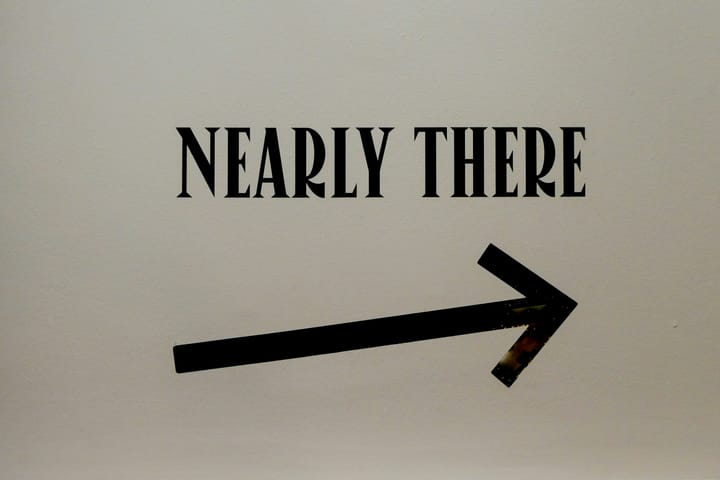How to Stay Productive When Things Calm Down
It can be hard to adjust to a calmer schedule without looming deadlines and the pressure of jumping from fire to fire. Learn five ways to make the most of it when you can.

It’s funny to me to even write the title of this article. For those of you who are familiar with my philosophy on productivity, it will come as no surprise that it’s a bit of a bait-and-switch. My definition of what it means to be productive is pretty broad and includes (requires, in fact) rest, relaxation, and connection.
So what happens when things do calm down?
I recently had an interesting conversation with a client that reminded me how hard it can feel to adjust to a calmer schedule when you are accustomed to looming deadlines and an overloaded calendar.
During the session, my client shared how things had slowed down for him for the summer. He had fewer meetings, and most people in his organization were taking vacation over the next few months, so many of his projects wouldn’t pick up again until the fall. The pace of his work calmed significantly.
He laughed and said,
“This is the dream, right?... So, why am I so anxious?”.
Here’s the thing… Though it seems counterintuitive, when things are hectic, it often feels easier to prioritize what to do because it’s whatever fire is burning brightest. Motivation comes from emergencies, and (sadly) being overwhelmed feels familiar.
It’s then uncomfortable when you are able to stop being reactive and instead make more intentional choices about what to do with your time.
My conversation with my client is similar to one I have with many others. They finally get to a place where things feel relatively calm, and they have some space… and they hardly know what to do with themselves. They’re unsure of how to “best” spend their time. Productivity guilt starts to build, and the “shoulds” creep in.
Unfortunately, the solutions are often to:
- Relax boundaries in an effort to refill their calendars and feel “productive” (only to get overloaded again)
- Break out of usual routines because they don’t have the same time pressures as before (and completely lose their good habits)
- Languish without making a choice at all (and feel neither productive nor relaxed)
So what do you do?

How to stay productive when things calm down
Here are five things to consider when life calms down and you have an opportunity to be less reactive and more intentional about where you put your attention, time, and energy.
1. Evaluate your definition of what it means to “work”
Most knowledge workers think of work as being either at their desks or in meetings. Their days are often driven by their inboxes or whichever meeting they are headed into next. The curse of immediacy pulls their attention to whatever email, text, or instant message notification has popped up most recently and sets their priorities for them (usually other people’s priorities).
Does this sound familiar? Even if you don’t sit at a desk, your definition of what it means to “work” might also be skewed toward “doing” rather than things like:
- Planning
- Strategy
- Learning/Education
- Training
- Team building
- Documentation
… or any number of important but non-urgent tasks (see the Eisenhower Matrix). These things make life easier when they do start to ramp up, but they’re often not given enough attention because they don’t demand it.
Consider how you define what “work” means in the context of your role.
- What are the activities or projects that always seem to get back-burnered but you know would be valuable?
- Are there courses or books that could improve your skills and knowledge?
- What are the biggest problems that come up when things start to ramp up? Is there anything you could change to smooth them out?
These activities are different, less obvious aspects of work that help support your business, team, or personal development. When things slow down, you have a valuable opportunity to focus on them.
2. Reflect on your goals
When things slow down a little, it’s also a good time to reflect on your goals. Ask yourself:
- How are they going?
- Do you need to do anything differently to meet them?
- Have they changed since you set them?
- Are they still the right goals?
- Is there anything you can reprioritize to make progress?
When things are busy, and you are being pulled in a lot of directions, often your goals get put to the side in favour of whatever priority is right in front of you. During a slow down, however brief, you can take some time to reflect on them and prioritize them (or set new ones!).
3. Reconnect or establish routines to keep up with your habits
Another funny thing that happens both when things are too busy and when things have calmed down is routines tend to suffer. Routines are what best support healthy habits. When it’s too busy, routines often get thrown off, which means healthy habits get deprioritized to make space for other things.
On the flip side, when things calm down, routines no longer feel as important because you have so much more flexibility. It becomes easier to let things slide, and suddenly, you are staying up too late, eating poorly, and not moving your body regularly.
The structure of a routine is extremely important, regardless of how busy or flexible things are. In both cases, routines help you maintain your habits, whether consistent sleep, healthy eating, or daily movement.
Of course, having some flexibility when things are calm is great, but be careful not to lose your habit momentum by completely abandoning all your routines.

4. Expand your definition of ambition
When things are calm, you might question your motivation and ambition. Without deadlines and a frenetic pace, it can feel like you are languishing without purpose. Part of the issue is ambition and achievement are often only connected to work and professional pursuits.
You are left to wonder if you are not pushing yourself hard in your work, are you still ambitious? A better question for you to consider is: Why can't you be ambitious about things outside your profession, like your family, friends, or a hobby?
If you were to focus your ambition elsewhere, where would it be? What kinds of things would motivate you without the deadlines and the fire-to-fire pace?
That’s not to say the pendulum won’t swing back to work pursuits if you want it to, but it’s worth considering other things that are worthy of your attention.
5. Expand your definition of productivity
One of the greatest challenges many of my clients have to overcome is shifting their perspective on what they consider productive time versus wasted time. They tend to feel that activities that do not have a future use are wasteful and have a hard time relaxing because they are not “doing” something. Classic productivity guilt!
I’ve written at length about productivity guilt, the “shoulds”, and redefining what it means to waste time versus spending it productively. Remember that rest, relaxation, and connection are productive activities. They are good for your physical health, mental health, and overall well-being. They don’t need to be in service of anything other than feeling good and bringing joy.
If you are in the enviable position of having a calmer schedule, think about these five areas and consider how you could spend that extra time, energy and attention. There are any number of ways to take this opportunity and use it “productively” in service of a good life, whatever that means to you.
If you are feeling anxious about how to "best" spend your time, let's chat. I can help you get clarity on what matters to you and reconnect to your goals.
Share
Ashley Janssen

Productivity consultant, writer, speaker, serial entrepreneur, chaos calmer, introvert, cat-lady. Lover of books, fitness, old fashioned’s, basketball, and video games.
Follow me on
Twitter
or
LinkedIn.
Hire me for
1 on 1 productivity consulting
or
speaking.
Related articles

When Is It Enough?

Debunking The False Promises of Productivity


Comments ()